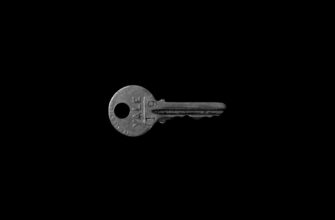Recover Private Key from Hackers: Essential Best Practices for 2024
Private keys are the cornerstone of digital security, acting as unforgeable signatures for cryptocurrencies, encrypted communications, and sensitive data. When hackers compromise these keys, they gain complete control over your assets and identity. This guide delivers actionable best practices to recover private keys from hackers while fortifying your defenses against future attacks. Immediate action combined with strategic recovery protocols can mitigate catastrophic losses.
Understanding How Hackers Steal Private Keys
Hackers deploy sophisticated methods to hijack private keys. Recognizing these threats is the first step toward recovery and prevention:
- Phishing Scams: Fake websites or emails mimicking legitimate services trick users into entering keys.
- Malware Attacks: Keyloggers or clipboard hijackers silently record keystrokes or replace wallet addresses during transactions.
- Supply Chain Compromises: Corrupted software updates or hardware wallets intercept keys during installation or use.
- Social Engineering: Manipulation tactics coax victims into voluntarily surrendering access credentials.
Immediate Steps When Your Private Key is Hacked
If you suspect a breach, act within minutes to limit damage:
- Isolate Compromised Devices: Disconnect from the internet to halt ongoing data exfiltration.
- Freeze Associated Accounts: Contact exchanges, banks, or service providers to lock wallets or accounts linked to the key.
- Scan for Malware: Use trusted antivirus tools (e.g., Malwarebytes) to detect and remove key-stealing infections.
- Document Evidence: Record transaction IDs, hacker addresses, and timestamps for legal or recovery purposes.
Best Practices to Recover and Secure Compromised Keys
Recovery isn’t guaranteed, but these methods maximize your chances:
- Leverage Multi-Signature Wallets: If set up beforehand, use secondary keys to move assets to a new secure wallet.
- Engage Blockchain Forensics: Firms like Chainalysis trace stolen funds, potentially freezing them via exchanges.
- Utilize Decoy Techniques: For non-crypto keys (e.g., SSH), revoke old keys and issue new ones while monitoring for unauthorized access attempts.
- Enable 2FA Everywhere: Add biometric or hardware-based two-factor authentication to all critical accounts.
Post-recovery, migrate assets to a new hardware wallet and never reuse compromised keys.
Proactive Measures to Prevent Private Key Theft
Prevention trumps recovery. Adopt these habits:
- Use Cold Storage: Store keys offline on hardware wallets (e.g., Ledger, Trezor) or paper in fireproof safes.
- Regular Audits: Check wallet addresses and transaction histories monthly for anomalies.
- Encrypt Backups: Secure digital key backups with AES-256 encryption and store them in geographically separate locations.
- Education & Vigilance: Train teams/yourself to spot phishing attempts and verify software sources.
FAQ: Recovering Private Keys from Hackers
Q1: Can I recover stolen cryptocurrency using my private key?
A: No. If hackers control the key, they own the assets. Focus on tracing funds through exchanges or legal channels instead.
Q2: How do I know if my private key was hacked?
A: Signs include unauthorized transactions, unfamiliar devices in login histories, or antivirus alerts about keyloggers.
Q3: Are hardware wallets foolproof against hacking?
A: They’re highly secure but vulnerable to physical theft or supply chain attacks. Always buy from official sources and use PIN protection.
Q4: Should I pay ransomware demands to recover keys?
A: Never. Payment funds criminal activity and offers no guarantee of key recovery. Consult cybersecurity experts instead.
Q5: Can AI tools help recover private keys?
A: AI aids in threat detection and pattern analysis but cannot “crack” lost keys. Use it for proactive monitoring, not recovery.
Recovering a private key from hackers demands speed, expertise, and layered security. By implementing these best practices—from emergency protocols to hardened storage—you transform vulnerability into resilience. Stay vigilant: Your keys guard more than assets; they protect your digital sovereignty.








